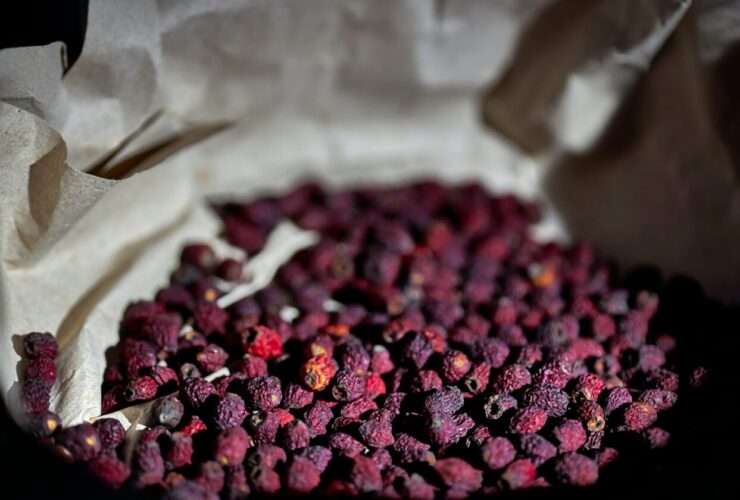Introduction
Cinnamon has long been celebrated for its aromatic flavor and potential health benefits, but its relationship with ketosis sparks curiosity and debate among health enthusiasts. As more people go on ketogenic diets to increase their metabolism and lose weight, the topic of “Does cinnamon break ketosis?” comes up. Let’s investigate this fascinating question and solve the puzzles around the use of cinnamon in ketogenic diets.
The inner bark of trees is used to make cinnamon, which has gained popularity for its culinary uses and possible effects on metabolic processes. The addition of cinnamon to the ketogenic diet raises concerns regarding its impact on insulin sensitivity and blood sugar levels, even if the diet’s main focus is on low-carb, high-fat eating to induce ketosis. Anyone looking to maximize the benefits of ketosis and cinnamon usage must comprehend how the two interact.
Going deeper into this subject, we’ll look at the nutritional makeup of cinnamon, how it might affect metabolism, and useful suggestions for including it in a ketogenic diet. By our adventure ends, you’ll have gained insightful knowledge about the complex relationship between cinnamon and ketosis, enabling you to make wise decisions for your overall health. Together, let’s investigate this matter and learn the real story of cinnamon’s effects on ketosis.
Exploring Ketosis and Its Benefits
Ketosis, a metabolic state characterized by elevated levels of ketones in the bloodstream, plays a pivotal role in various aspects of health and wellness. The body enters a state known as ketosis when it switches from burning carbs as its main fuel source to burning fat. As demonstrated by the ketogenic diet, this metabolic change is brought about by drastically cutting back on carbs while consuming more healthy fats and moderate amounts of protein. Limiting carbohydrates forces the body to use its fat reserves as fuel, which has several advantages.
One of its main benefits is the effectiveness of ketosis in promoting weight loss and reducing body fat. Compared to conventional low-fat diets, those who adopt a ketogenic lifestyle can lose fat more quickly because they utilize their body’s capacity to burn fat for energy. In addition, ketosis provides consistent energy levels all day, reducing blood sugar swings and averting the energy collapses often linked to diets high in carbohydrates. Furthermore, because ketones are a powerful energy source for the brain, being in a state of ketosis is believed to improve concentration and mental clarity. Those looking to boost their cognitive function and productivity would benefit from this cognitive improvement.
In conclusion, a metabolic condition known as ketosis has many advantages over weight reduction. The benefits of ketosis go well beyond weight loss, including increased mental clarity and energy levels. Through the adoption of a ketogenic diet and utilization of ketosis, people can realize the maximum potential of their bodies for optimum health and well-being.
Cinnamon’s Nutritional Breakdown

Cinnamon, a beloved spice renowned for its warm and aromatic flavor, offers more than just culinary appeal—it boasts a commendable nutritional profile. After careful analysis, it turns out that cinnamon has very few calories and carbs, which makes it a good choice for anyone following a ketogenic diet. At only 19 calories and 0.9 grams of net carbohydrates per tablespoon, cinnamon is a tasty supplement that works well with low-carb eating plans.
In addition to being high in macronutrients, cinnamon also contains many antioxidants, which help the body fight inflammation and oxidative damage. Beyond aiding in ketosis, these antioxidants—which include polyphenols and cinnamaldehyde—contribute to the possible health advantages of cinnamon. According to research, regular cinnamon consumption may help control blood sugar, lessen cravings, and enhance insulin sensitivity, making it a useful tool for managing metabolic health.
Adding cinnamon to your diet has several possible health benefits in addition to improving the flavor of many different foods. Cinnamon can help support ketosis and add flavor and nutrients to drinks, yogurt, smoothies, and infusions. Accepting the adaptability and nutrient-denseness of cinnamon can improve your eating experiences and improve your health in general.
Cinnamon’s Metabolic Impact
Much research has been conducted to uncover the possible benefits of cinnamon due to the spike in scientific interest in the spice’s impact on metabolism in recent years. There are encouraging ramifications for weight control and metabolic health, as a new study indicates that cinnamon may improve metabolism and control blood sugar levels. Cinnamon supplementation improved insulin sensitivity and fasting blood sugar levels in people with type 2 diabetes, according to a study published in the Journal of Medicinal Food. These findings suggest that cinnamon may have a beneficial effect on metabolic parameters.
Clarifying the mechanism of action underlying the metabolic effects of cinnamon is essential to determining its possible medicinal uses. Bioactive substances found in cinnamon, such as procyanidins and cinnamaldehyde, have been demonstrated to have anti-inflammatory and antioxidant effects. These substances strengthen insulin signaling pathways, increase cellular absorption of glucose, and lessen insulin resistance, all of which would lead to better metabolic performance. Even if the early data is encouraging, more investigation is required to clarify the exact processes and ideal dosage of cinnamon for its metabolic advantages.
It is important for anyone thinking about adding cinnamon to their diet to approach supplementation mindfully and cautiously. While eating little amounts of cinnamon in food is generally considered safe, larger dosages or concentrated supplements may be dangerous, especially for people taking medication or who have underlying medical issues. Therefore, it’s best to speak with a healthcare provider to find out whether taking supplements containing cinnamon is safe and acceptable, especially for people who want to support their ketosis journey and improve their metabolic health.
Practical Tips for Cinnamon and Ketosis

Cinnamon can be a tasty and helpful addition to a ketogenic diet, helping you to stay in ketosis while consuming tasty foods. Use premium, organic cinnamon in your recipes to guarantee purity and effectiveness. Because ground cinnamon is so versatile and simple to use, it may be easily added to a wide range of foods, from breakfast to dessert. It’s crucial to exercise moderation and portion control to prevent any possible effects of ketosis. Even though cinnamon has a low net carb count, consuming too much can still increase your overall carb intake. Pay attention to portion sizes, especially if you watch your carb intake carefully to maintain ketosis.
Try experimenting with keto-friendly meals with this flavorful spice to improve your ketogenic experience. The possibilities are boundless, ranging from savory dishes like meat rubs laced with cinnamon to sweet treats like almond flour-based cinnamon rolls suitable for keto diets. You may enhance your ketogenic lifestyle and take advantage of the possible health benefits of cinnamon by expanding your culinary range with inventive recipes that incorporate this versatile spice.
When adding cinnamon to your ketogenic routine, timing is another important consideration. Eating foods or drinks flavored with cinnamon throughout the day might help control blood sugar levels and increase fullness, which may support healthy metabolism and weight management. However, paying attention to your body’s signals and modifying how much cinnamon you consume is crucial. By strategically incorporating it into your meals and snacks, you may take advantage of cinnamon’s distinct flavor profile and maximize your ketogenic journey for long-term success and overall well-being.
Does Cinnamon Break Ketosis?
A. Answer in Short:
Cinnamon, when consumed in moderation, is unlikely to break ketosis. This aromatic spice is low in net carbohydrates, making it a suitable addition to ketogenic diets. However, excessive consumption of cinnamon or consuming it with high-carb foods may impact ketosis due to its potential to increase blood sugar levels. Therefore, it’s essential to be mindful of portion sizes and consider incorporating cinnamon into low-carb recipes to minimize any potential disruption to ketosis.
B. Answer in Depth:
The impact of cinnamon on ketosis primarily depends on its carbohydrate content and how it’s consumed. Cinnamon is low in net carbohydrates, with approximately 0.7 grams of net carbs per teaspoon. This makes it compatible with ketogenic diets, which typically restrict daily carbohydrate intake to around 20-50 grams to induce and maintain ketosis. However, if consumed in large quantities, cinnamon’s carbohydrate content can add up and potentially affect ketosis, especially for individuals with strict carbohydrate limits.
Moreover, cinnamon has been shown to benefit blood sugar levels by improving insulin sensitivity and lowering fasting blood glucose levels. While these properties can benefit overall health, consuming cinnamon with high-carbohydrate foods may temporarily increase blood sugar levels, potentially hindering ketosis. Therefore, individuals following a ketogenic diet should be cautious when incorporating cinnamon into their meals and opt for low-carb recipes to mitigate any adverse effects of ketosis.
Cinnamon is a flavorful spice that can complement a ketogenic lifestyle when consumed mindfully. While it’s unlikely to break ketosis on its own due to its low carbohydrate content, excessive intake or consumption of high-carb foods may impact blood sugar levels and potentially interfere with ketosis. To enjoy the benefits of cinnamon without compromising ketosis, individuals should practice portion control and incorporate it into low-carb recipes. By doing so, they can savor the unique flavor of cinnamon while maintaining their ketogenic goals.
FAQ about Cinnamon, Ketosis, and Intermittent Fasting
Q: Will cinnamon take me out of ketosis?
A: While cinnamon itself is low in carbohydrates and unlikely to take you out of ketosis when consumed in moderation, excessive intake or consuming it with high-carb foods may impact blood sugar levels and potentially interfere with ketosis. It’s essential to be mindful of portion sizes and consider incorporating cinnamon into low-carb recipes to minimize any potential disruption to ketosis.
Q: Will cinnamon break intermittent fasting?
A: Cinnamon is generally considered safe to consume during intermittent fasting, as it contains minimal calories and negligible carbohydrates. However, consuming cinnamon with added sweeteners or in large quantities may stimulate insulin secretion and break your fast. It’s best to consume cinnamon in its natural form or with water during fasting periods to avoid any potential interference with the fasting state.
Q: Does cinnamon break fat?
A: Cinnamon itself does not directly break down fat. However, some studies suggest that cinnamon may improve insulin sensitivity and regulate blood sugar levels, indirectly supporting fat metabolism. Incorporating cinnamon into a balanced diet and active lifestyle may contribute to overall metabolic health and aid in fat-loss efforts.
Q: Do spices break intermittent fasting?
A: Most spices, including cinnamon, do not break intermittent fasting when consumed naturally. However, if spices are consumed with added sugars or oils or in large quantities, they may stimulate metabolic responses that could disrupt the fasting state. It’s advisable to use spices sparingly and opt for unprocessed varieties during fasting periods to maintain the benefits of intermittent fasting.
Q: What cancels ketosis?
A: Several factors can cancel or hinder ketosis, including consuming excessive carbohydrates, lack of physical activity, stress, inadequate sleep, and certain medications or supplements. It’s crucial to adhere to a low-carbohydrate diet, exercise regularly, manage stress levels, prioritize sleep, and consult with a healthcare professional when necessary to maintain ketosis effectively.
Q: What has unexpectedly kicked you out of ketosis?
A: Unexpected factors that may kick you out of ketosis include consuming hidden carbohydrates in sauces, dressings, or processed foods, indulging in cheat meals or snacks high in carbs, inadequate hydration, excessive alcohol consumption, and insufficient electrolyte intake. Monitoring your diet closely, staying hydrated, and paying attention to food labels can help prevent unintentional interruptions to ketosis.
Conclusion
Investigating the connection between cinnamon and ketosis shows a complex dynamic that needs serious thought. Although cinnamon has few carbohydrates and is unlikely to interfere with ketosis when taken in moderation directly, it is still important to pay attention to portion sizes and other dietary choices. By dispelling misconceptions and offering fact-based advice, we may enable people to make knowledgeable decisions about adding cinnamon to their ketogenic diet.
Throughout this conversation, we have emphasized the possible advantages of cinnamon, including its capacity to enhance insulin sensitivity and control blood sugar levels. It’s important to understand that everyone reacts differently to cinnamon and that its effect on ketosis can vary depending on several factors, such as lifestyle choices, general diet, and metabolic health. As a result, we advise readers to experiment with cinnamon while keeping their dietary preferences and objectives in mind.
In conclusion, although cinnamon can add flavor to a ketogenic diet, it is important to consume it in moderation and with mindfulness. People can use cinnamon’s potential benefits and stay in the desired state of ketosis by being knowledgeable and paying attention to their bodies. Ultimately, a well-rounded diet that includes cinnamon and a balanced approach to nutrition can improve general health and well-being.
References
Masood, Wajeed, Pavan Annamaraju, Z Khan, and Kalyan R Uppaluri. 2023. “Ketogenic Diet.” Nih.gov. StatPearls Publishing. June 16, 2023. https://www.ncbi.nlm.nih.gov/books/NBK499830/.
Azam Borzoei, Maryam Rafraf, Shirin Niromanesh, Laya Farzadi, Fateme Narimani, and Farideh Doostan. 2018. “Effects of Cinnamon Supplementation on Antioxidant Status and Serum Lipids in Women with Polycystic Ovary Syndrome.” Journal of Traditional and Complementary Medicine 8 (1): 128–33. https://doi.org/10.1016/j.jtcme.2017.04.008.
Hamid Mollazadeh, and Hossein Hosseinzadeh. 2016. “Cinnamon Effects on Metabolic Syndrome: A Review Based on Its Mechanisms.” PubMed 19 (12): 1258–70. https://doi.org/10.22038/ijbms.2016.7906.
Was this helpful?

Joseph Emb, RDN
Founder of StyleVitally.com | Registered Dietitian & Wellness Advocate
What I Cover:
I’m passionate about connecting nutrition science and everyday wellness to help people live healthier, more vibrant lives. I write about evidence-based nutrition, mindful eating, sustainable lifestyles, and holistic well-being at StyleVitally.com.
My Background:
The University of Texas in Austin, where I earned my Dietetics diploma, laid the groundwork for my nutrition and health career. My training and hands-on experience taught me the science and art of using nutrition to enhance health and well-being.
Professional Journey:
I’m an RDN with lots of experience. I’ve helped people seeking tailored nutritional recommendations in clinical settings and community outreach programs. My constant learning and professional development ensure that my recommendations are always based on the latest evidence.
Ethical Commitment:
My practice prioritizes integrity. My content is transparent and objective, following the most significant ethical standards. I can give my audience unbiased advice because I’m not affiliated with food businesses or industry associations. I want to help people make informed health decisions that match their values and ambitions.
Join Me on the Wellness Journey:
Join me on the path to vitality and well-being, whether facing nutritional issues, seeking sustainable lifestyle changes, or simply wanting a better, happier you. We’ll discover how diet, mindfulness, and holistic well-being can maximize your potential.









